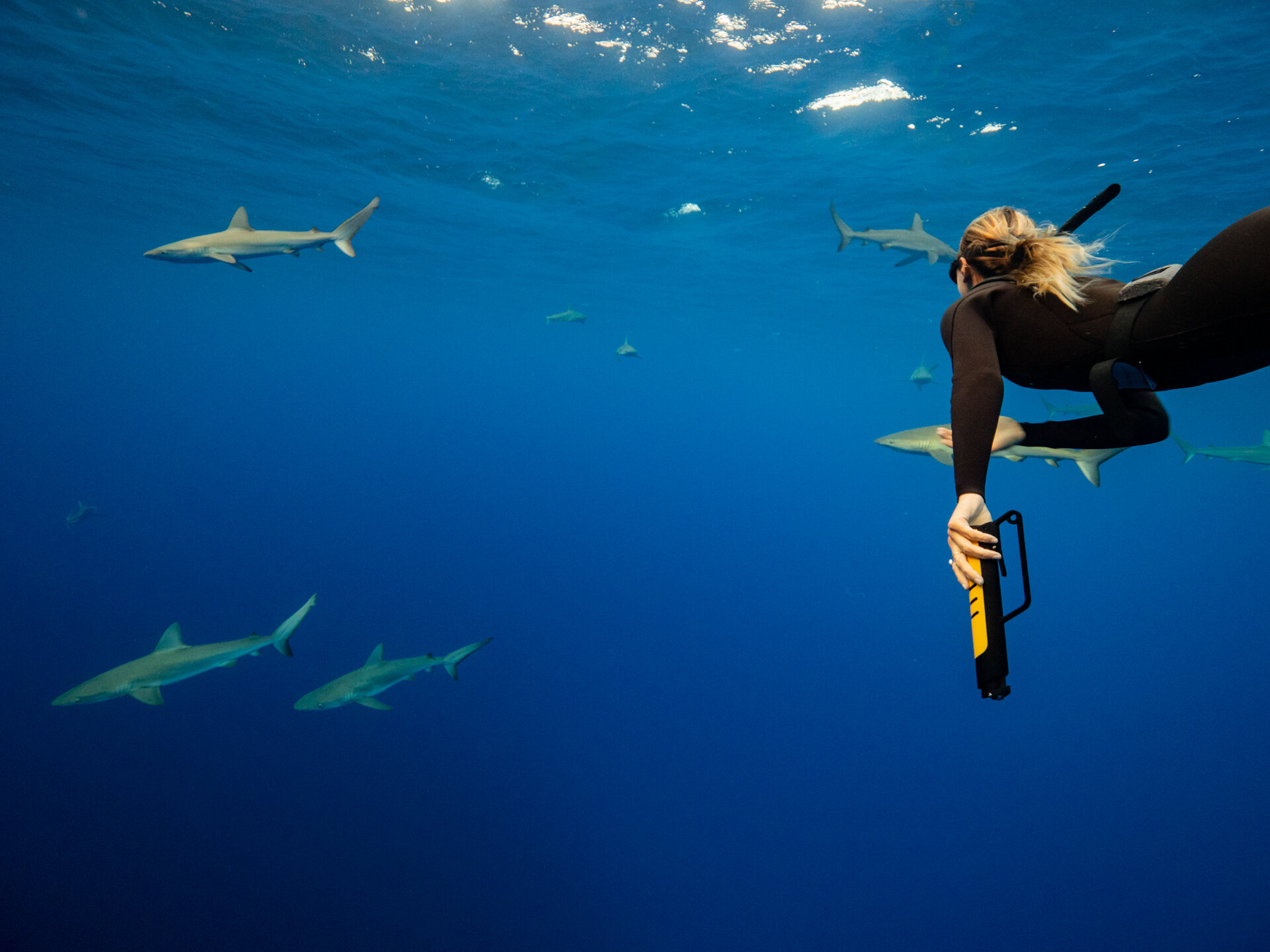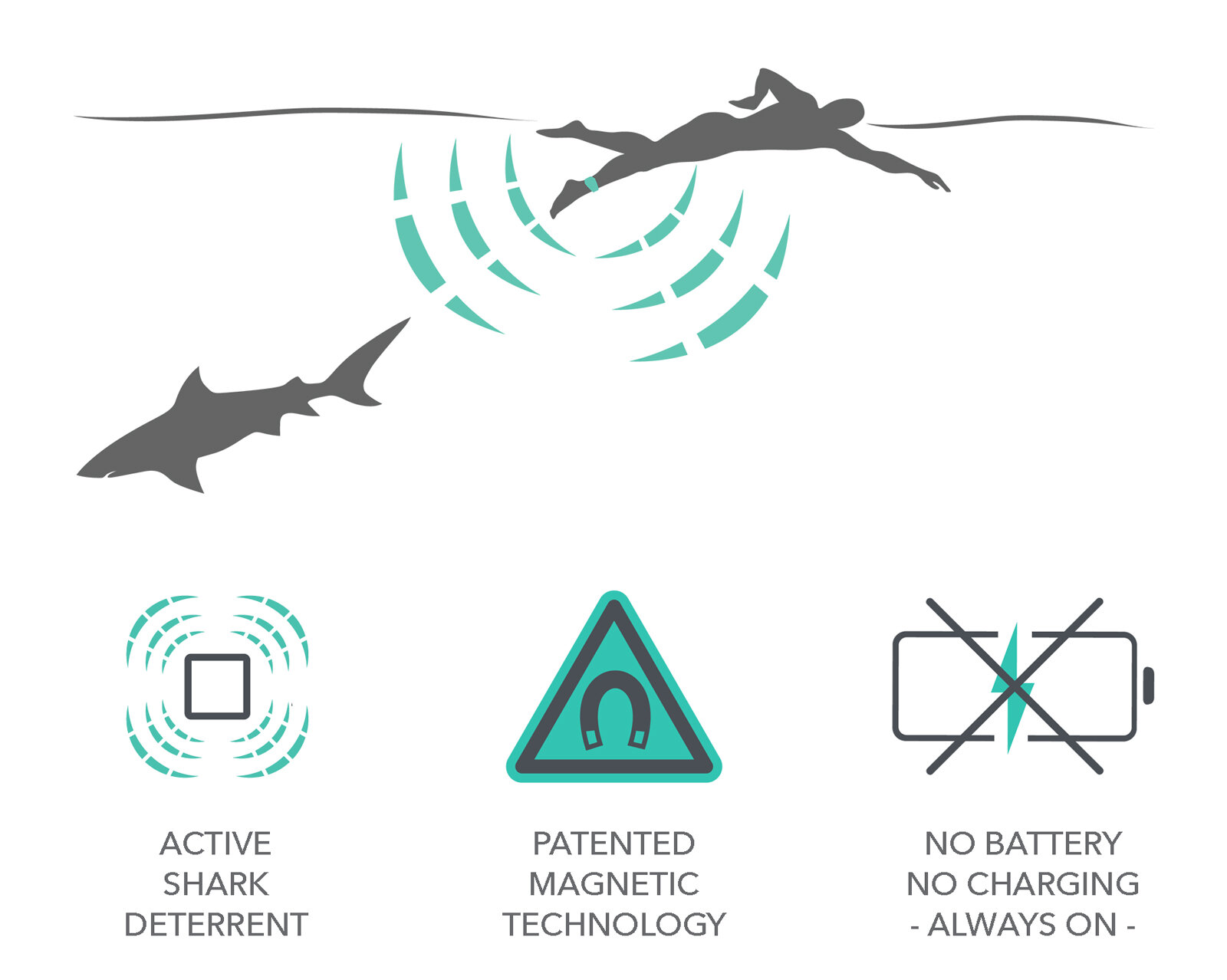Shocking Sharks Could Help Save People... And Sharks
Shocking Sharks Could Help Save People... And Sharks
Sounds an exciting solution doesn't it? Well, it may not be the simple one-stop solution to stopping shark bites that the research is suggesting.
Remember when Chief Brody used an electricity cable at the end of Jaws 2 to defeat the shark?
Well, now new research has suggested that using electrical deterrents could be an effective way to prevent shark attack deaths and injuries.
Obviously they aren't talking about getting sharks to chomp down on giant electricity cables, but it's estimated that such devices could save the lives of up to 1,000 Australians during the next 50 years.
Could. That impressive sounding number though is based on ALL water users wearing a shark repellent.
Of course, any reduction in deaths can only be a good thing, those lofty-sounding numbers just need putting into some sort of context.
Diver swims with hand held electrical shark deterrent.
And in turn, any reduction in deaths by sharks could also mean less retribution attacks on sharks in areas where shark attacks have taken place.
Lead author Professor Corey Bradshaw of Flinders University claims that electrical deterrents could be capable of reducing the likelihood of a bite by around 60%.
“ Avoiding death, injury, and trauma from shark bites over the next half-century would be a realistic outcome if people use these personal electronic deterrents whenever they’re in the water, and as long as the technology is operating at capacity.”
The device works by disrupting the electro-reception used by sharks when they hunt prey. In tests on mock surfboards with bait in areas where Great White sharks roam, only one of the deterrents worked, with the others not having any impact.
And that's the problem, as highlighted by UK shark scientist and host of the SharkBytes YouTube channel, Kristian Parton. Speaking from his home in the south west of England, he said: "There are a number of assumptions in this modelling that are unfortunately impossible to verify, and we should always consider that when looking at modelling studies like this.
"It's also important to highlight issues with shark repellants giving water-users a false sense of security when entering the water, leading them to put themselves in more dangerous situations than they would have before. We want to AVOID situations like this, as it could result in increased shark bites!"
Anything that increases the likelihood of deterring against a shark attack is naturally welcome, but there still needs to be more research regarding conditions the device is used in, if it is used properly, and whether it is more effective on one species of shark than another.
It's encouraging but cautious good news then, and certainly shouldn't mean people in the water using them take increased risks.
As it stands, there is no available shark deterrent that can guarantee you will not encounter a shark, or indeed repel it.
Kristian added: "On the flip side, Shark repellants could be a potential future alternative to harmful drum lines and shark nets in Australia, which have shown minimal evidence in reducing shark related fatalities.
"Using shark repellants, alongside perhaps new Drone-shark spotter technologies, could provide good alternatives that benefit BOTH sharks and humans."
FURTHER READING: SharkEye Scores A Bullseye By Identifying Shark Species From The Air
By Dean Newman
If you would like to contribute a guest blog, please visit our ‘work with us’ page
Follow The Daily Jaws on Facebook, Twitter, instagram & TikTok



